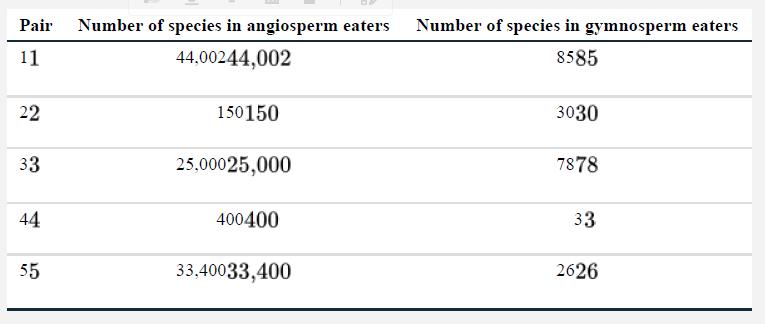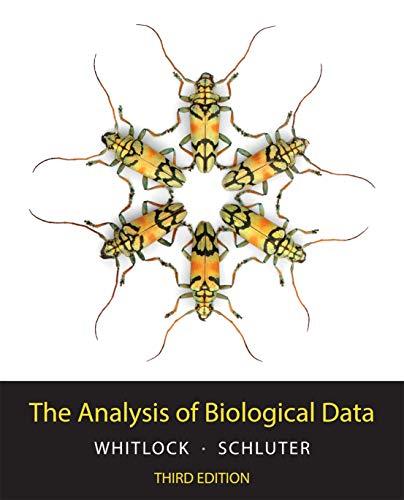One of the founders of modern population genetics, J. B. S. Haldane, was once asked if he
Question:
One of the founders of modern population genetics, J. B. S. Haldane, was once asked if he could infer anything about God from his study of nature. He replied, “An inordinate fondness for beetles,” reflecting the beetles’ status as the most species-rich animal group. One hypothesis for why beetles are so common is that a large number of them are plant eaters, and they may have ridden the coattails of the flowering plants (angiosperms) as the number of flowering plant species increased over the past 140 million years. A test of this hypothesis (Farrell 1998) compared the numbers of beetles in groups that feed on angiosperms to the number in the most closely related group that feeds on gymnosperms (non-flowering seed plants). Five such pairs of groups were compared in this way. The data are as follows:

a. Are the differences in species number between these groups likely to come from a population with a normal distribution?
b. Do the groups that eat angiosperms and the groups that eat gymnosperms have different numbers of species? Carry out a formal test that does not require the assumption of a normal distribution.
c. Comment on the P-value and your conclusion in part (b) in light of the fact that the angiosperm-eating group had more species in all five pairs. What does this say about the power of your test?
Step by Step Answer:

The Analysis Of Biological Data
ISBN: 9781319226237
3rd Edition
Authors: Michael C. Whitlock, Dolph Schluter





